(If you are on this page as you are hoping to join us in September 2023 – we are still updating our previous year’s welcome page but give you this link to get an overview New to Lovelace 2021. You can also view the transition books we produced for children starting in Nursery and Reception in September 2021 – which can also be viewed on the bottom of that page.)
Do you have a child starting reception class from the 2023/24 academic year.
If so, your child will be participating in the reception baseline assessment (RBA) within the first 6 weeks of starting reception. The purpose of the assessment is to provide the starting point for a new measure that will help parents understand how well schools support their pupils to progress between reception and year 6 / the end of key stage 2. The government has produced a leaflet which explains how this works – which we have linked to at the bottom of this page.
At Lovelace we provide a safe, happy and nurturing learning environment. In the Early Years Foundation Stage children are developing good attitudes for future learning. Our activities are carefully planned to encourage children to become active learners by playing, exploring and creating.
The Reception and Nursery teams follow the Early Years Foundation Stage Reform 2020 guidance. In our learning environment both in the classroom and outside. We plan learning opportunities that build on their knowledge and skills so that all children make good progress. We meet the individual needs of the children by using topics and themes and the children’s interests. We provide a balance between child-initiated learning where the children access the continuous provision and specific activities that are planned and led by an adult. The staff are skilled at interacting with the child in their play.
You will receive regular information about these so you can support your child’s learning.
The EYFS Reform 2020 Development Matters and EYFS Statutory framework sets out:
“The early years provision is led well…. children are prepared well for the next stage of school and are ready to move confidently into Year 1” (Ofsted)
Areas of Learning and Development
Children should mostly develop the 3 prime areas first: –
Communication and Language: Listening and Attention, Understanding and Speaking

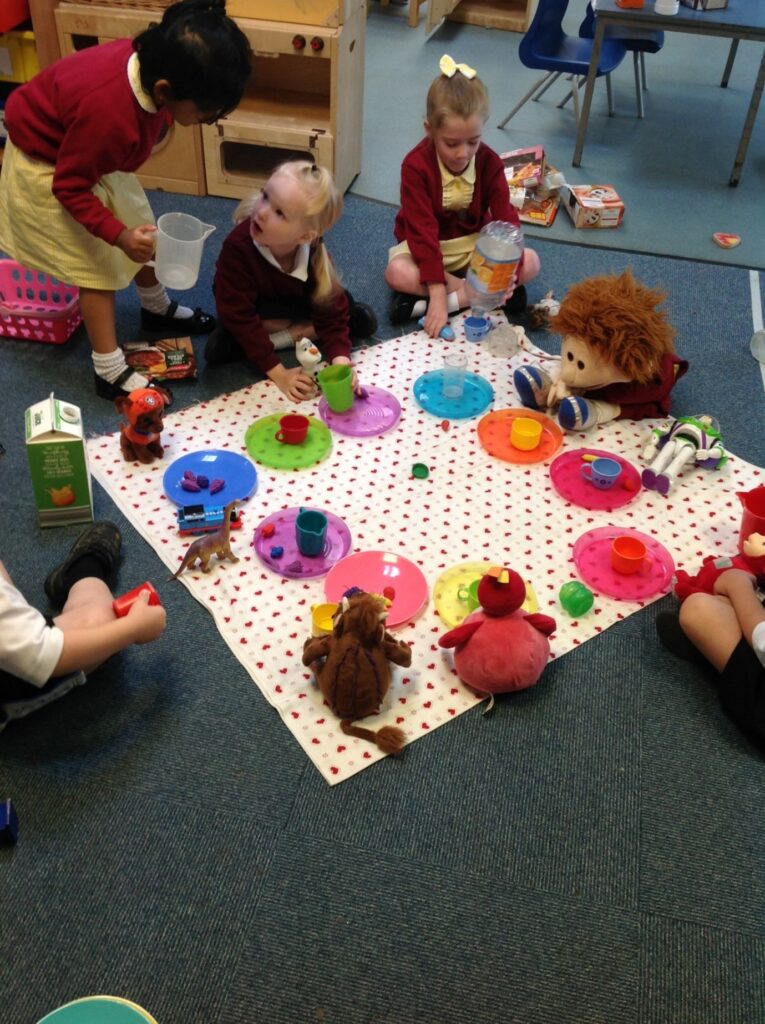
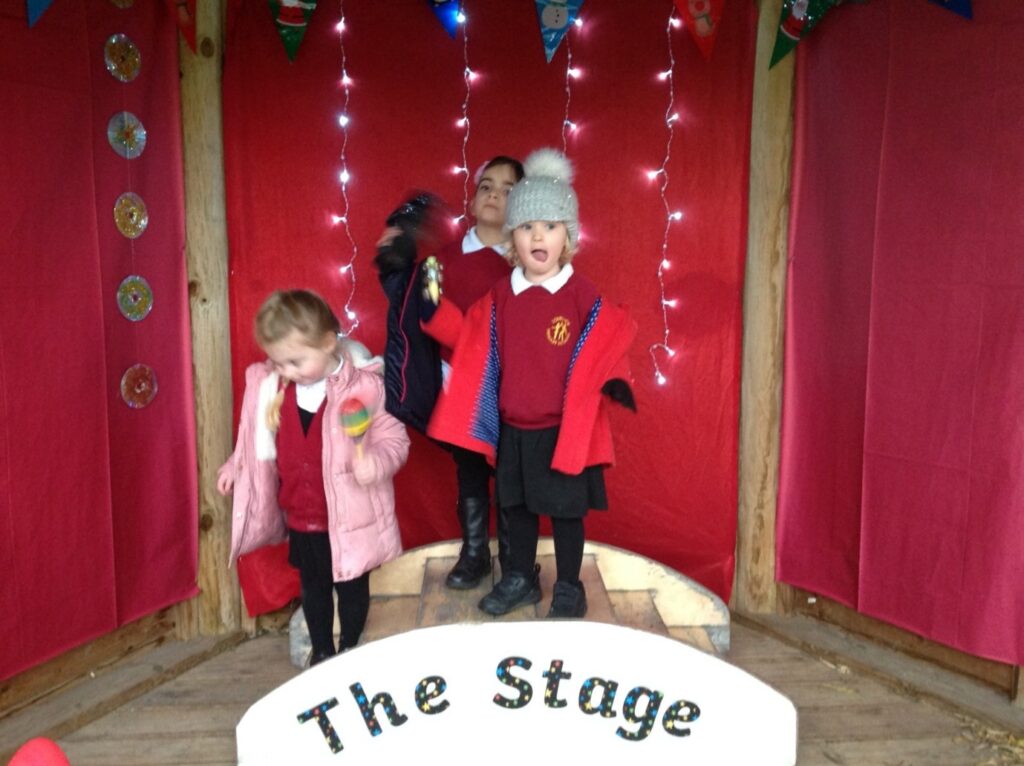
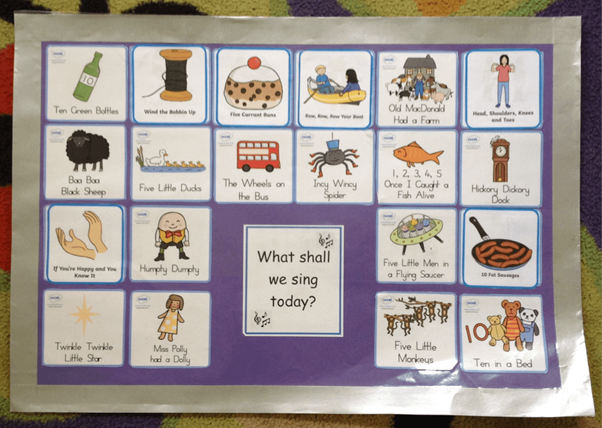
Physical Development: Gross Motor Skills and Fine Motor Skills
Personal, Social and Emotional Development: Self Regulations, Managing Self and Building Relationships
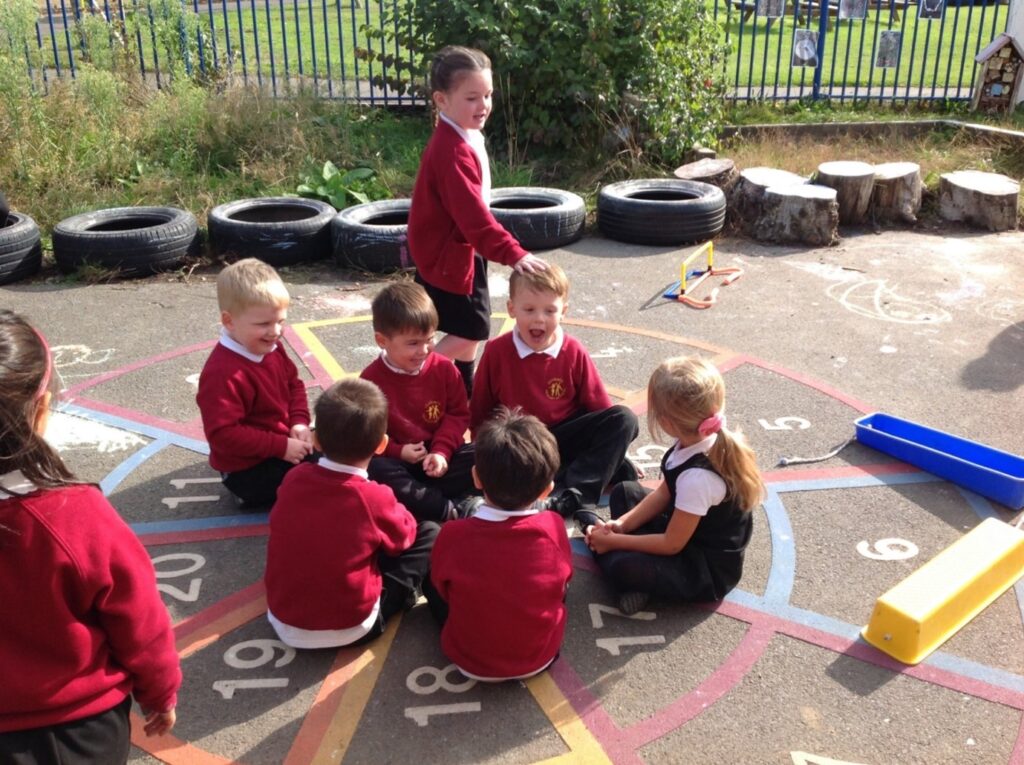
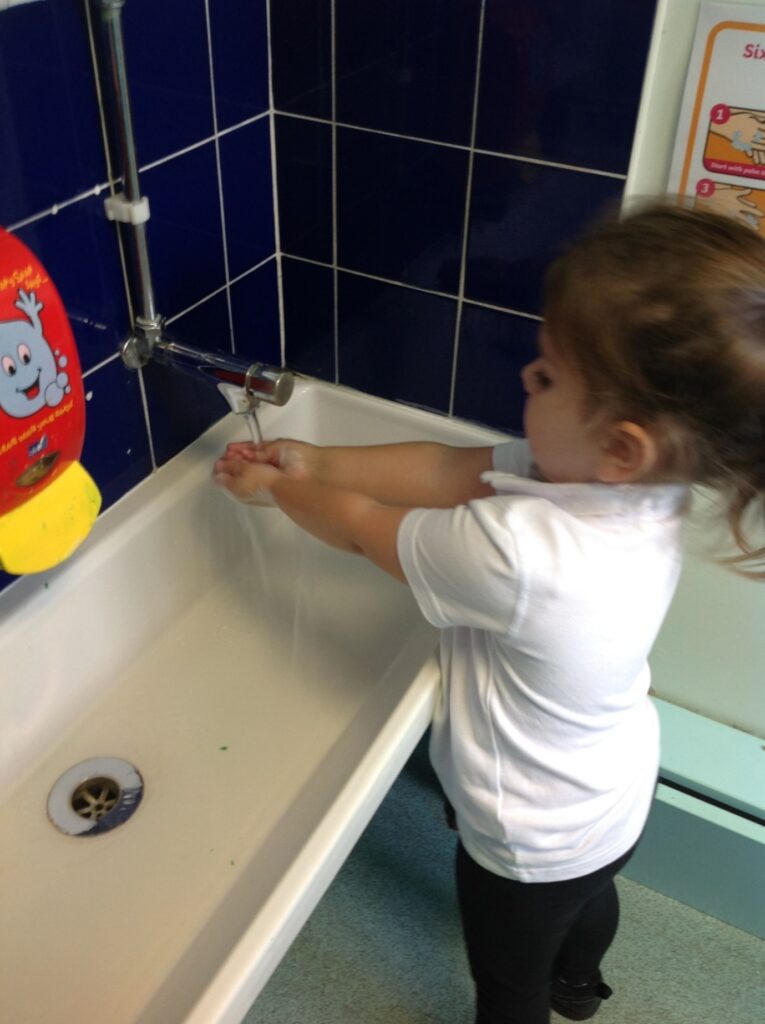
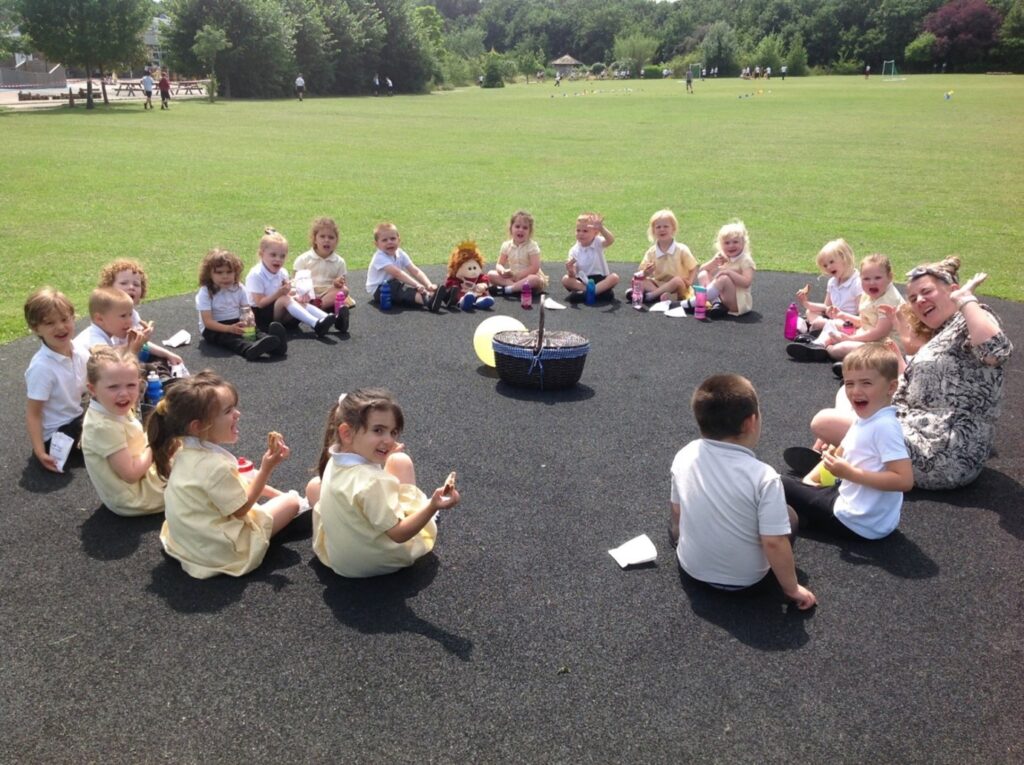
There are four specific teaching areas:
Literacy: Comprehension, Word Reading and Writing
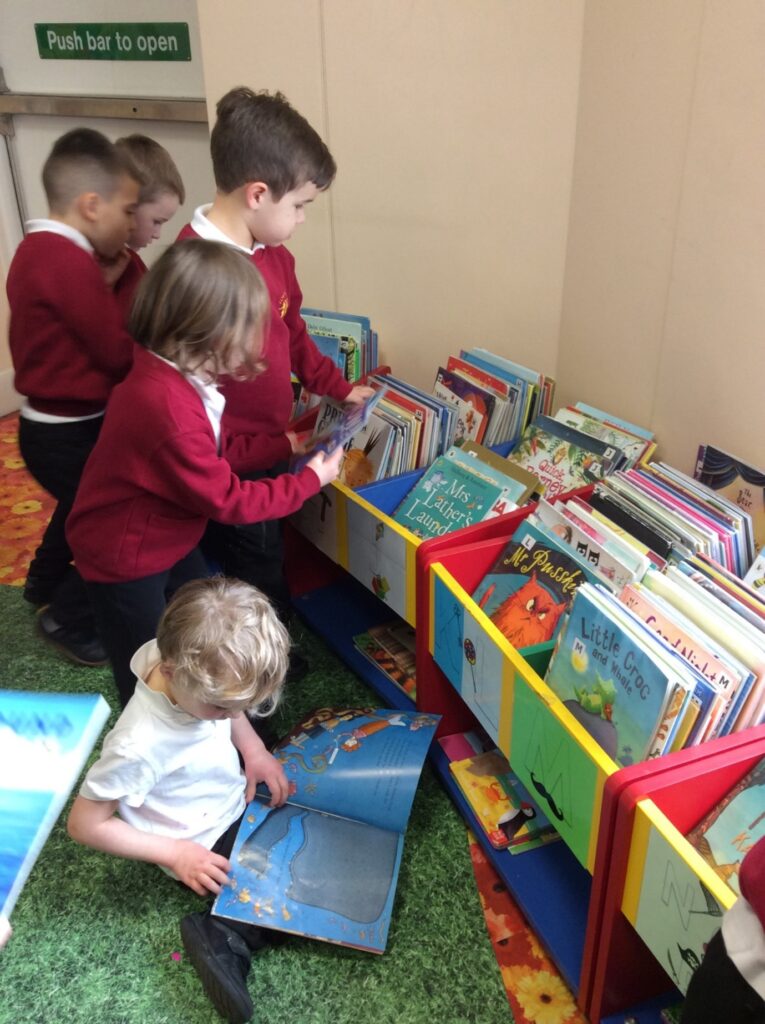
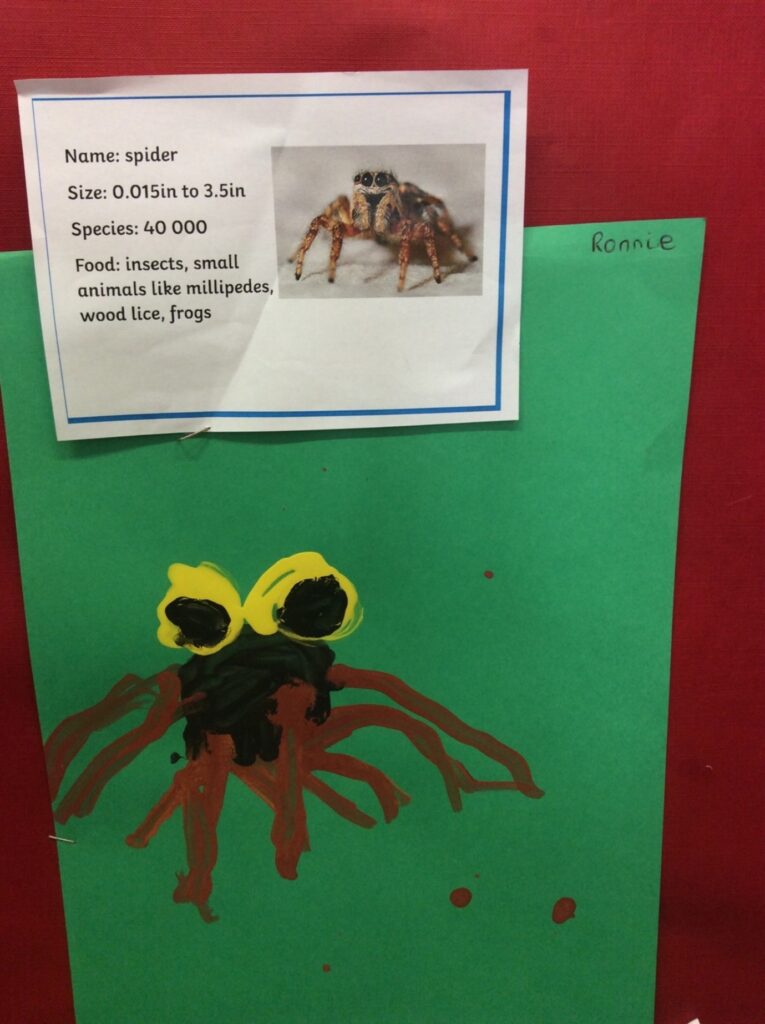
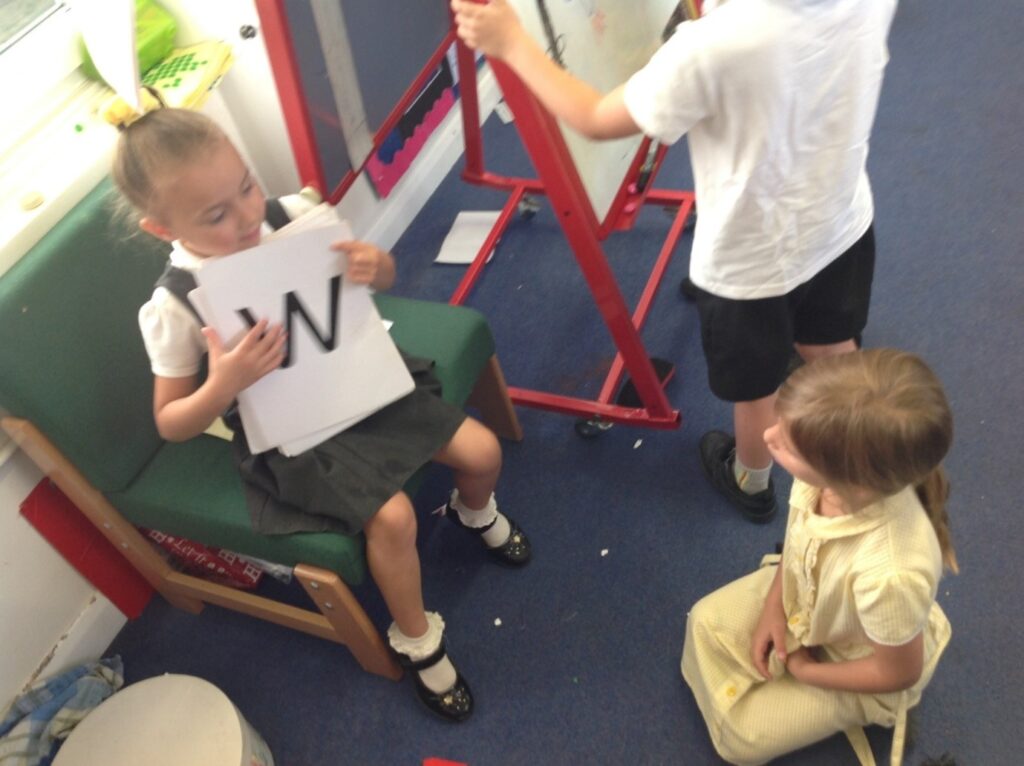
Mathematics: Numbers and Numerical Patterns
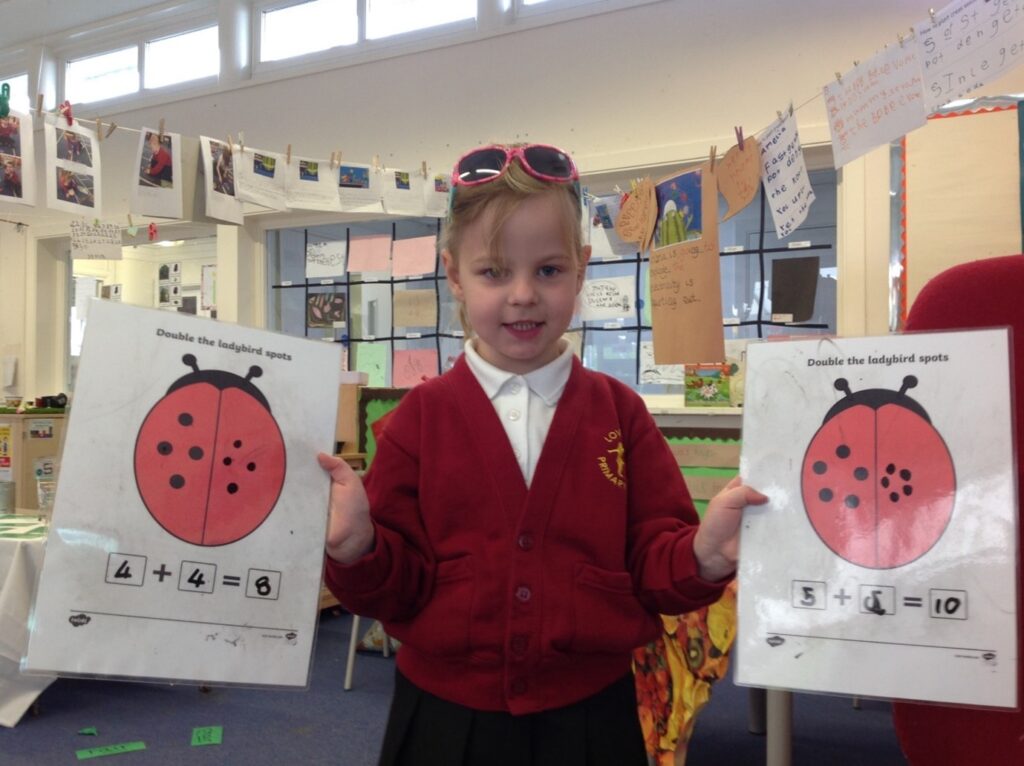
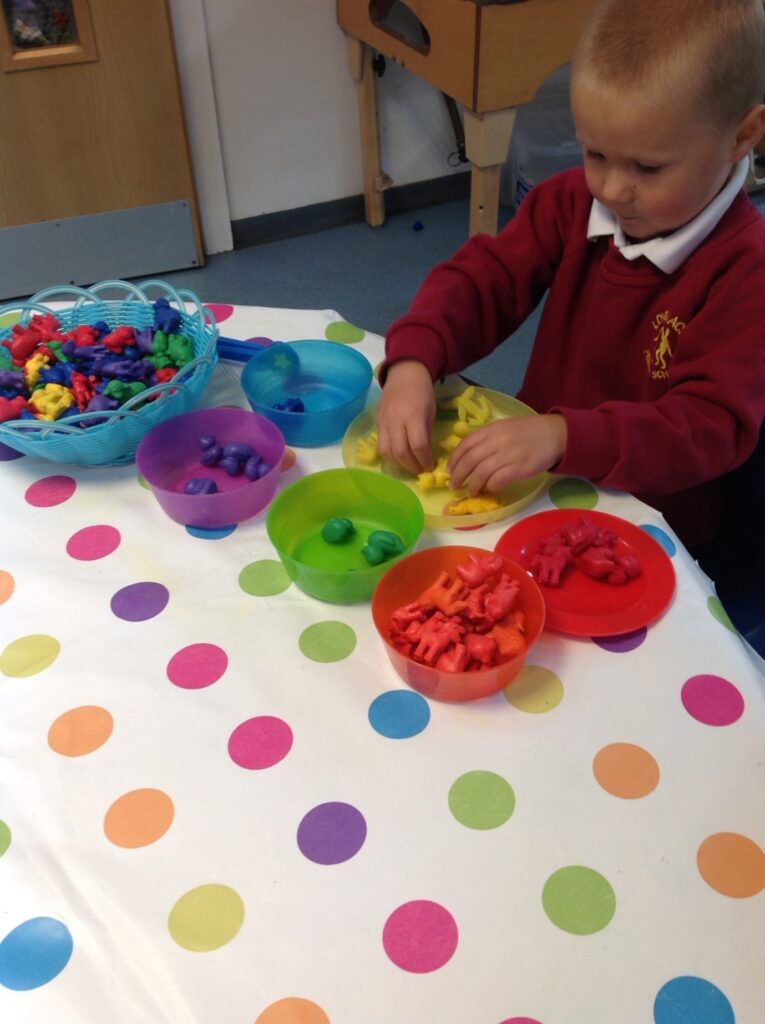
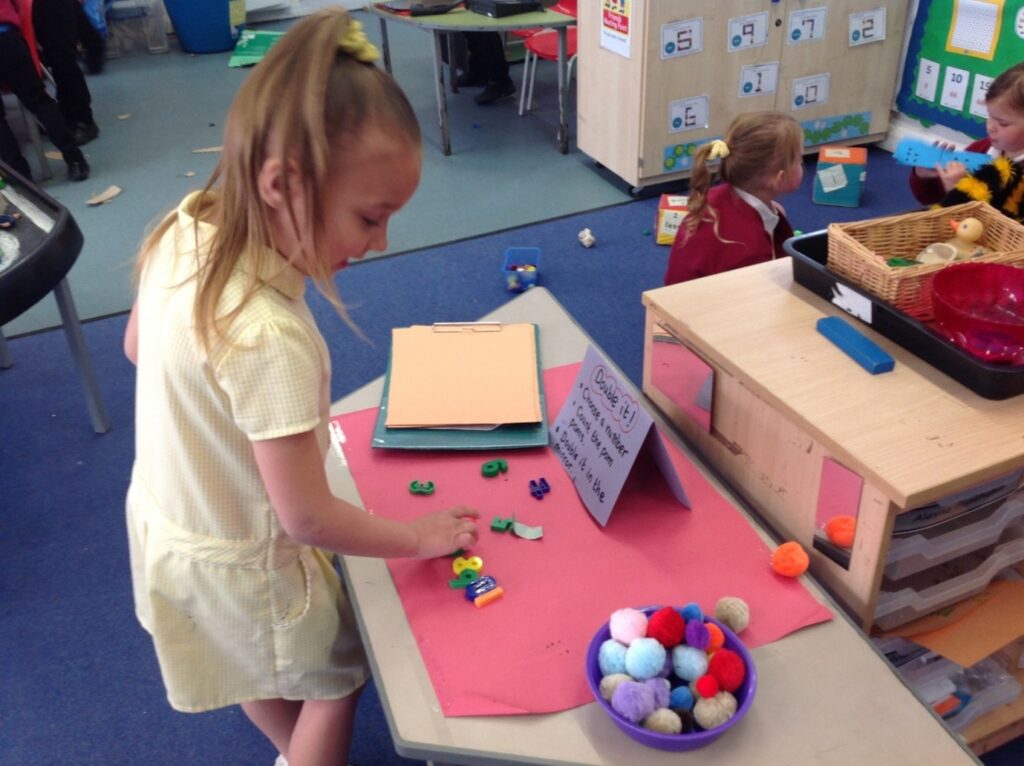
Understanding the world: Past & Present; People, Culture and Communities; The Natural World
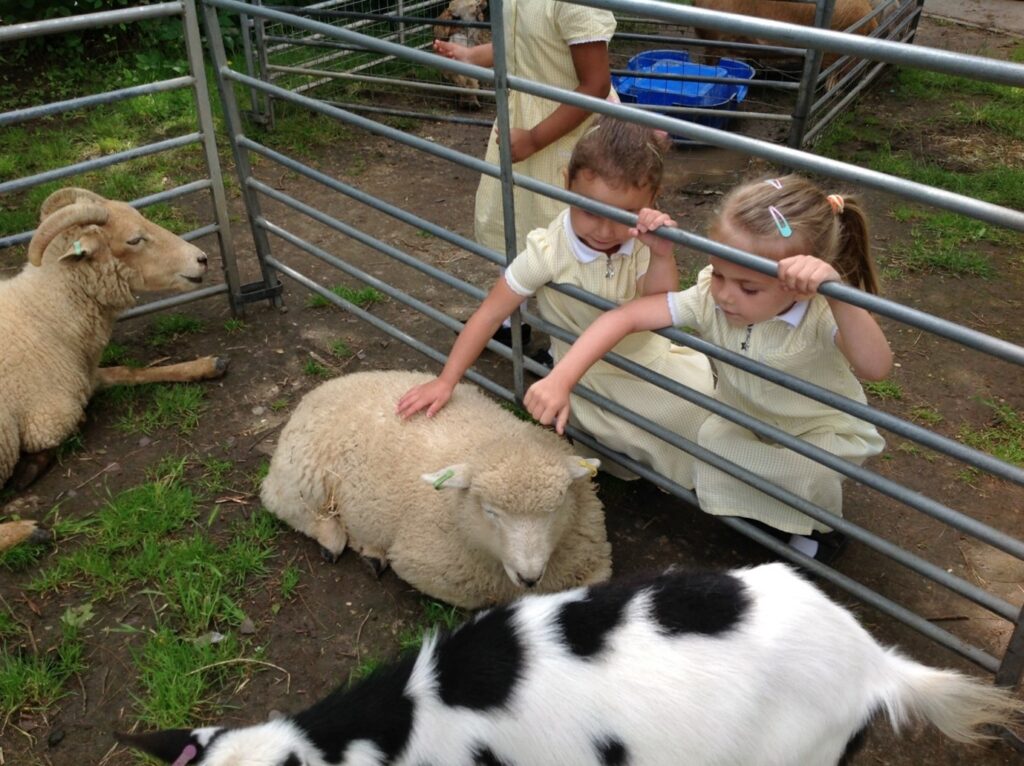
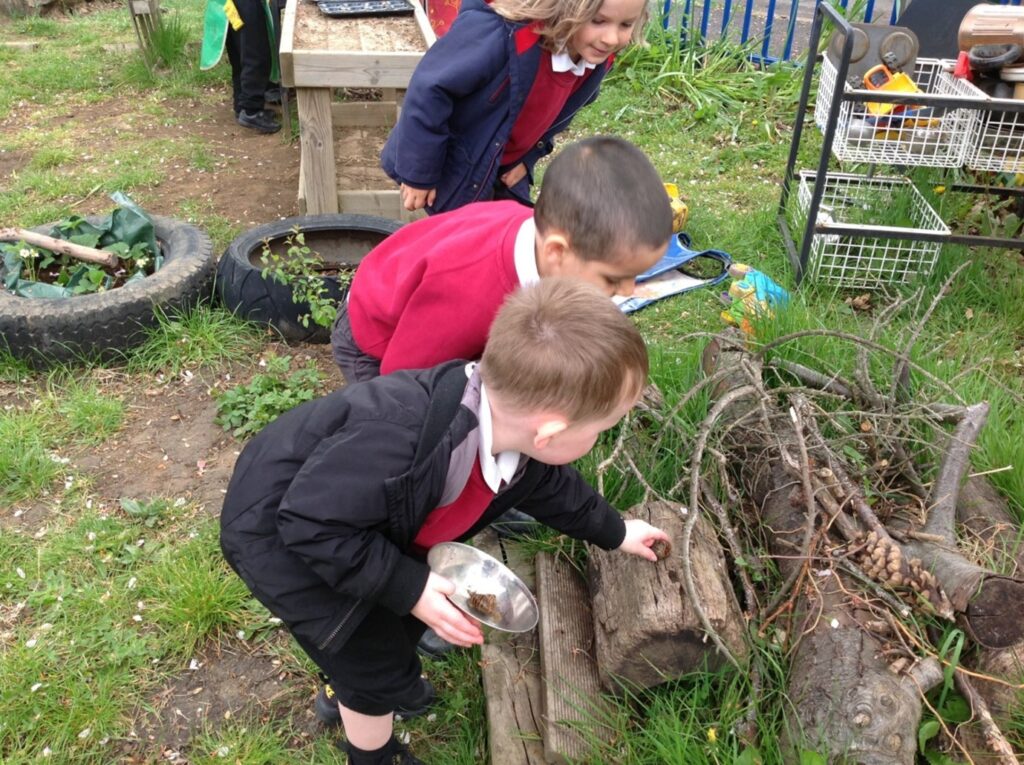
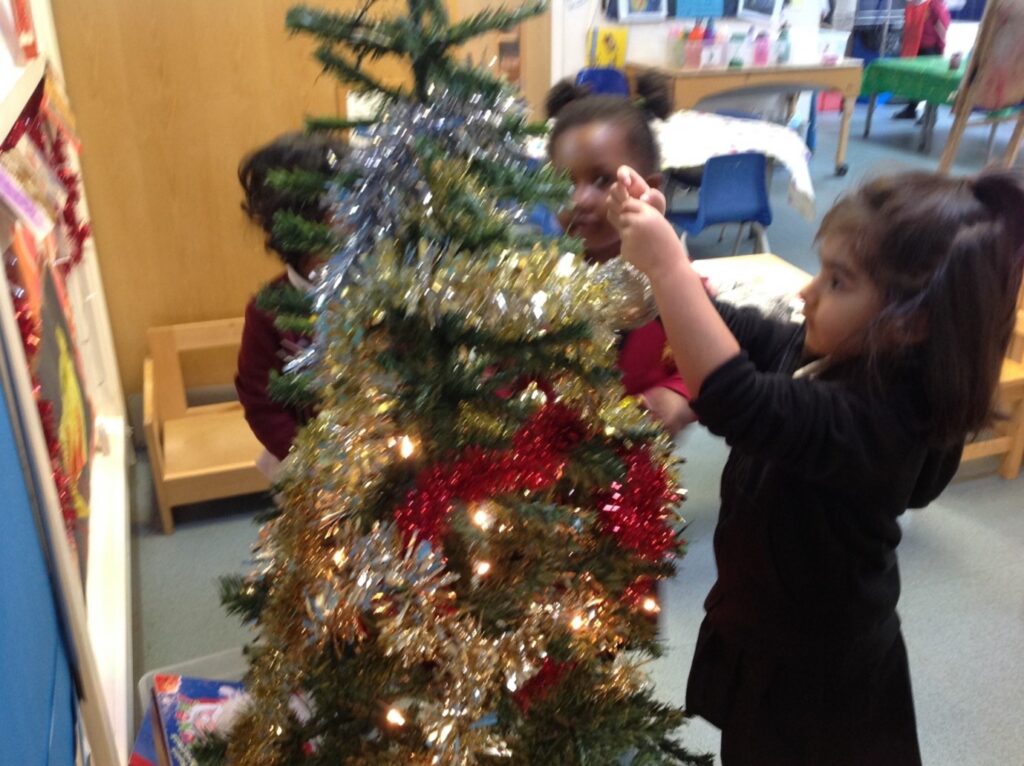
Expressive Arts and Design: Creating with Materials; Being Imaginative and Expressive
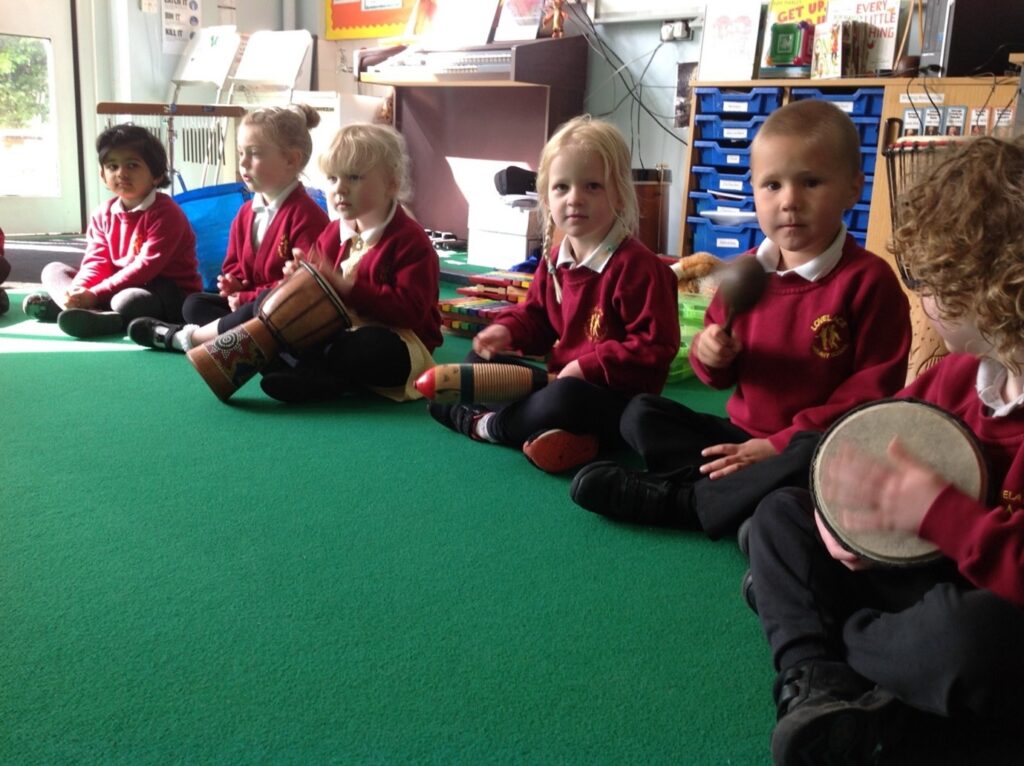
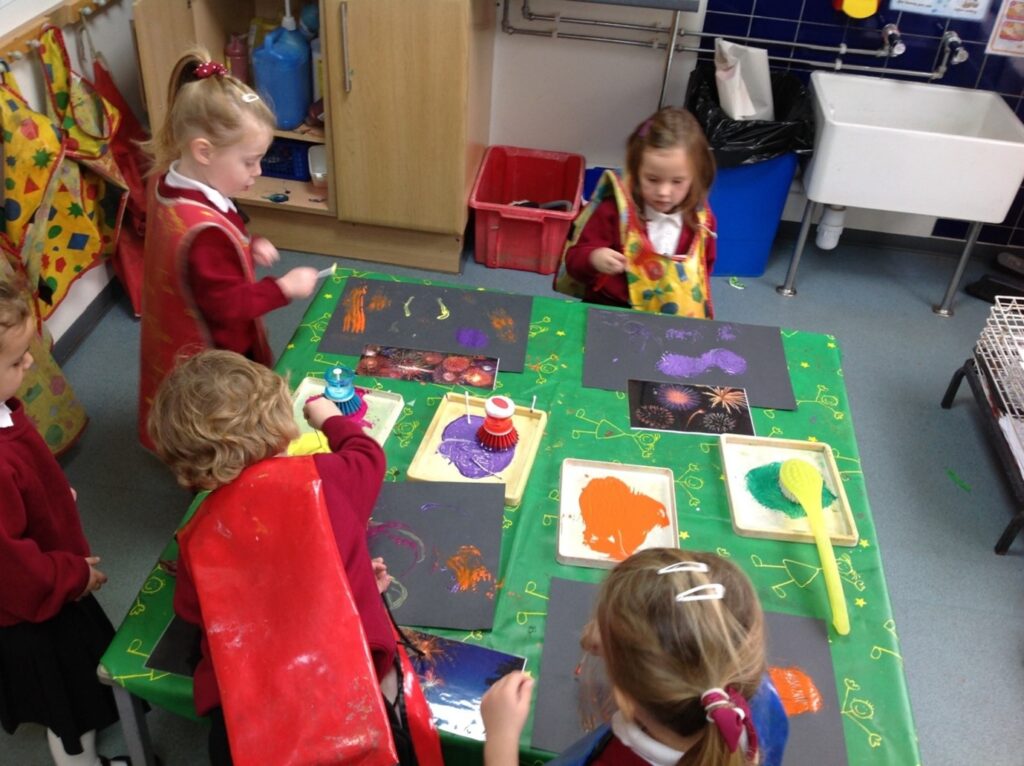

Characteristics of Effective Learning – (is summarised in document at bottom of page)
Children in the EYFS learn by Playing and Exploring, Being Active and through Creative and Critical Thinking. These are referred to as the ‘Characteristics of Effective Learning’ which takes place both indoors and outside.
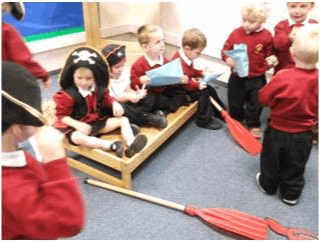

Phonics
In Nursery we develop children’s communication and language by following phase 1 of the guidance in Letters and Sounds.
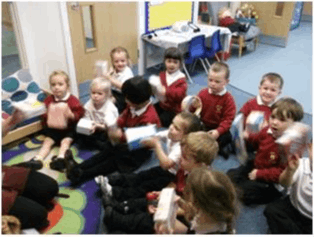
It is woven through the routines of our sessions and the activities we plan. We focus on listening skills using stories, music, songs and rhymes. We plan activities that help our children to develop skills to tune into individual sounds such as things they hear in the environment. This supports the children in the journey into phonics as they are identifying different sounds.
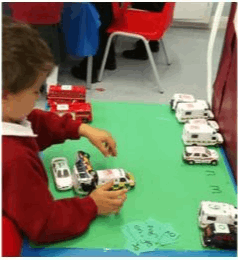
In Reception we follow the Read, Write Inc Phonics Programme. It sets out a detailed approach to teaching phonic skills to children. There are certain rhymes to help children to remember the sound that individual letters (graphemes) and groups of letters (digraphs) make. The children become familiar with the letter sounds and begin to blend letters together to read words. When they are ready, they will begin to read ditty books. Sometimes pupils might need a bit of extra help and we provide specific intervention groups to support these children. As a result, our pupils make good progress in Reading. You can get information on this method of teaching phonics in these documents and on the following website www.ruthmiskin.com
In the Autumn term we will tell you more about this in our Parent Workshops and you will be invited to see a phonic session in your child’s class.
Please see document at bottom of page to find out more about the Read Write Inc. programme and resources to support your children’s learning at home.
How we keep you informed of your child’s development: –
Each child will have their own individual Learning Journey. This will demonstrate significant achievements that your child makes and reflect their interests and learning styles. We will use photographs, work pieces that are annotated by the class adults as well as recording what the child says about their learning. There will be opportunities for you to share information about things your child enjoys doing at home. Our displays in the Early Years department will also celebrate the achievements of the children. We provide opportunities for Nursery and Reception parents to come in to share how we learn in our classes through workshops, open sessions and parent consultations. At the end of the reception summer term, teachers will finalise their EYFS assessments which are known as the Early Years Foundation Stage Profile. An important part of the EYFS Profile is your knowledge about your child’s learning and development, so do let your child’s class teacher know about what your child does with you. All of the information collected is used to judge how your child is progressing across the 7 areas of learning and development. Finding out at this stage how your child is doing will mean that the teacher your child has in the next school year knows what your child really enjoys doing and does well and will know how to continue to support your child’s progress.
As a parent, how can I help with my child’s learning?
All the activities you do with your child at home are important in supporting their learning. They will have a lasting effect on your child’s development.
Learning to Speak, Listen, Read and Write
Learning to Speak and Listen
Learning to express ideas clearly in speech and to gain information through listening to others is a key skill children will learn and practise in Nursery and Reception.
See Document “Top 10 Tips for Talking” (is at bottom of page)
Learning to Read
Sharing books with your child will support them to becoming confident readers.
Make sure the atmosphere is happy and relaxed, sharing a book is something to look forward to – it should not be a task which you feel you have to do.
Sit close together so you can both see the book comfortably
Choose a time when the television is not on, and the room is quiet
Step one:
Step two:
Read the story again and encourage your child to join in with:
Step three:
Discuss what has happened in the story:
Remember print isn’t only in books so encourage your child to be aware of “everyday” print.
Children have a wide experience of print.
Lead by example – let your child see you read.
Encourage your child to have a go:
A useful document – A love of books is a gift for life (is at bottom of page)
Learning to Write
Pre-writing skills
The precursor to good handwriting is good fine motor skills. Before children begin to write script they need generous opportunities to develop their fine motor skills.
Here are some ideas to encourage the development of fine motor skills:
Activities to develop pencil grip:
What can I do at home to help and encourage my child to write?
Other useful Documents: –
Writing ideas at home (is at bottom of page)
Pre cursive handwriting script (is at bottom of page)
Handwriting (is at bottom of page)
Letter Rhymes (is at bottom of page)
Transition into our Early Years Foundation Stage
All children have the opportunity to make a preliminary visit and to attend an open session with you. Parent information either by meetings or through a video link takes place at the end of the summer term. A member of the Early Years team will also visit your child at their pre-school setting, where possible. Along with the ‘Home visit @ school’ appointments made by the Nursery and Reception staff in September, we provide ample opportunity for discussion about your child’s needs and for him/her to get used to us. We provide a relaxed and smooth transition into our school. Both our nursery and reception children will have attended 2 or 3 transition sessions with a: smaller group at the beginning of term. This allows children to build relationships with the class team and get to know the routines. Most reception children will then attend full time. Some children might benefit from a slightly longer transition. Parents will be invited to consider whether their child is ready for full time school. Individual wishes may be discussed with Mrs Alison Hopkins who is responsible for the Early Years Foundation Stage.
Some children do find their first few weeks very tiring. During this period of adjustment, it is not unusual for them to be either irritable, quite demanding or even tearful at home. You might find that you need to be especially understanding and patient at this time! Fortunately this phase soon passes as they adapt to the school day and the excitement of their new school.
To familiarise children with their new school we have compiled a Guide to Transition for Parents and a book of photographs of the class teams and the class and school environment.
